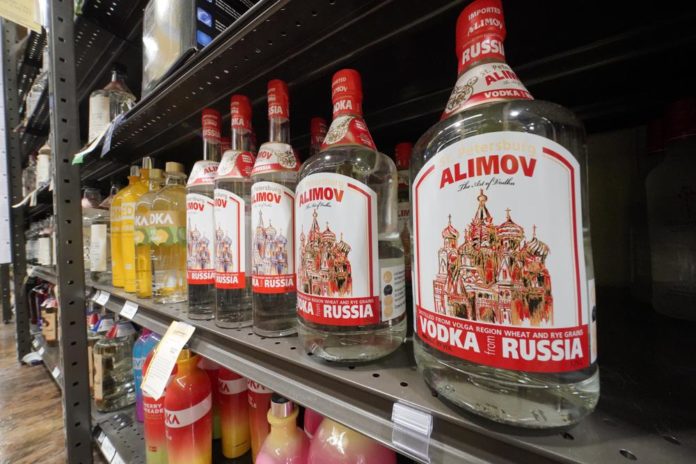
The House voted Thursday overwhelmingly to suspend normal trade relations with Russia and Belarus, preparing for President Joe Biden to enact higher tariffs on more products and further weaken the Russian economy in response to its military assault on Ukraine.
The U.S. has already taken steps to shut off the importation of Russian oil, liquefied natural gas, seafood, alcohol, and diamonds. The vote on Thursday sets the stage for making it more expensive to import certain steel, aluminum, and plywood items, among other goods.
The House vote was 424-8. The Senate is expected to take up the measure soon for final passage.
The broad trade action, which would revoke “most favored nation” status for Russia, is being taken in coordination with the European Union and Group of Seven countries. The House vote came one day after Ukrainian President Volodymyr Zelenskyy pleaded with Congress and U.S. allies to do more to deter Russia’.
“I’m asking to make sure that the Russians do not receive a single penny that they use to destroy people in Ukraine,” Zelenskyy said in a video address to Congress.
In a joint statement introducing the trade bill, Reps. Richard Neal, D-Mass., and Kevin Brady, R-Texas, said Zelenskyy’s remarks “only strengthened our resolve to further isolate and weaken” Russian President Vladimir Putin.
“We must do all we can to hold Putin accountable for senselessly attacking the Ukrainian people and undermining global stability,” the two lawmakers said. “The suspension of normal trade relations is an essential part of our effort to restore peace, save lives and defend democracy.”
World Trade Organization rules generally require each member to provide its lowest tariff rates to all WTO members. Russia joined the WTO in 2012, and Congress overwhelmingly approved legislation that year, providing the president with the authority to extend normal trade relations status with Russia. But countries can enact exceptions to protect security interests.
Still, the revocation would carry mostly symbolic weight. The earlier sanctions on imports of Russian oil, gas, and coal already cut off about 60% of U.S. imports from the country, but certain sectors of the economy could feel an effect.
Senate Majority Leader Chuck Schumer, D-N.Y., said, “To date, both parties, Democrat and Republican, remain united in sending Putin a clear message: His inhumane violence against the Ukrainian people will come at a crippling price.”
Tariffs make imports less competitive by increasing their costs to U.S. companies. Timothy Brightbill, a partner at Wiley Rein LLP who focuses on international trade law, said the effects on American consumers should be modest in most sectors as companies can generally turn to other suppliers. He said it’s important for U.S. supply chains not to run through Russia anymore and that consumers understand that.
“Most American consumers would be happy to pay a bit more to ensure that their products and raw materials don’t support Russia and the Russian government,” Brightbill said.
He also said that revoking Russia’s trade status sends a strong signal to China that the United States would not tolerate hostile actions against Taiwan.
Eight Republicans voted against the House measure, but speakers from both parties forcefully advocated for its passage during the debate. Democratic Reps. Lloyd Doggett, D-Texas, and Earl Blumenauer, D-Ore., introduced an earlier version.
“What Putin is doing in Ukraine, bombing civilians, targeting children, … is outside the circle of civilized human behavior,” said House Speaker Nancy Pelosi. “He is committing war crimes, and he must be held accountable.”
Rep. Victoria Spartz, R-Ind., who was born in Ukraine, said the bill sends a message to Putin and his allies that “the West is serious.”
“They cannot just go kill a bunch of people, destroy cities, kill women and children and then go back and have business as usual,” Spartz said.
Republished with the permission of the Associated Press.













